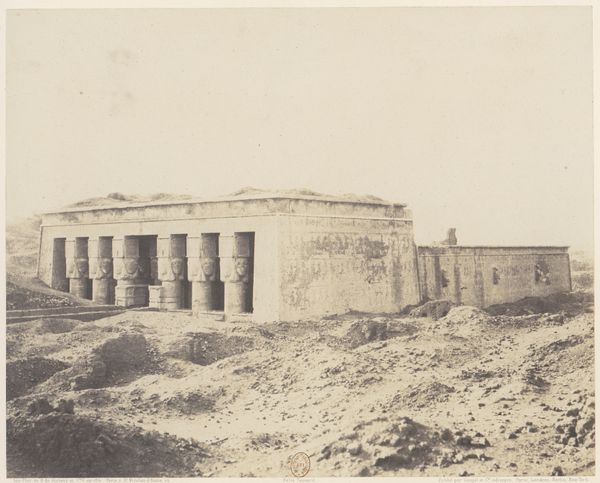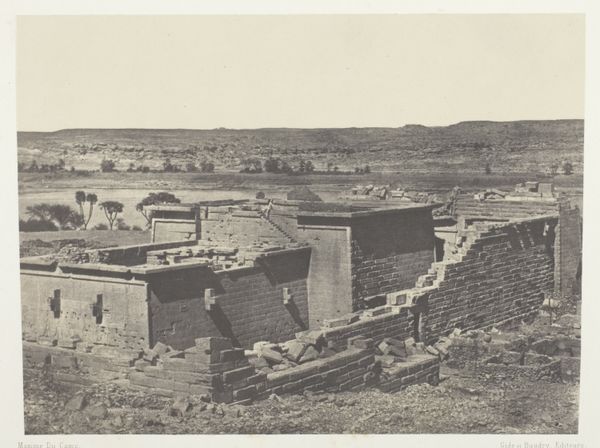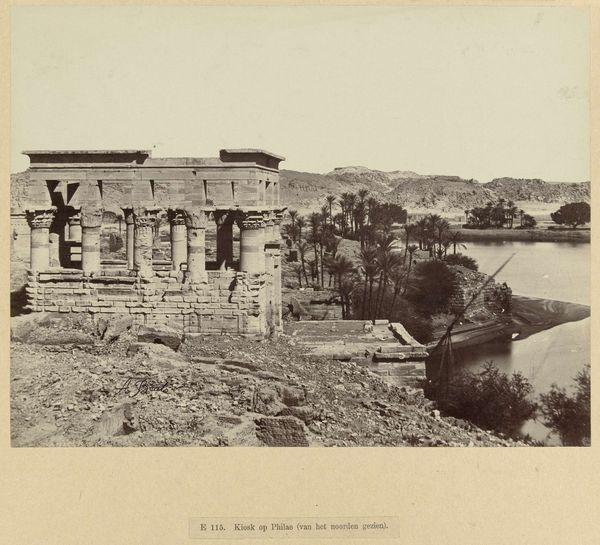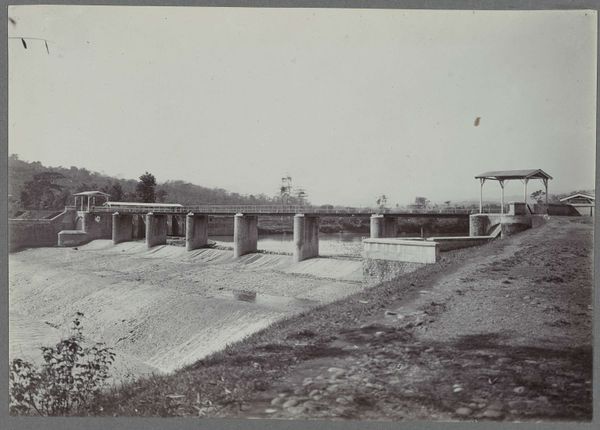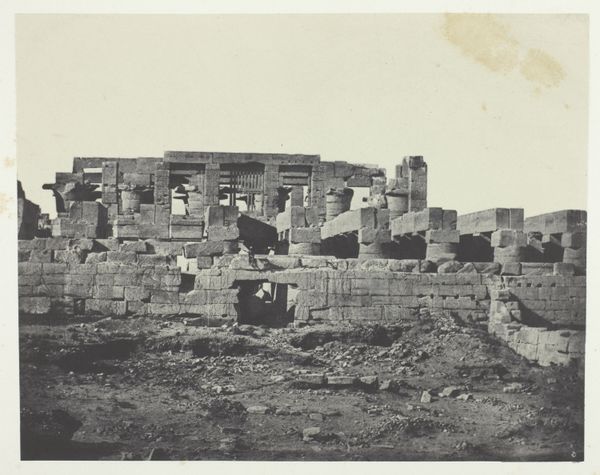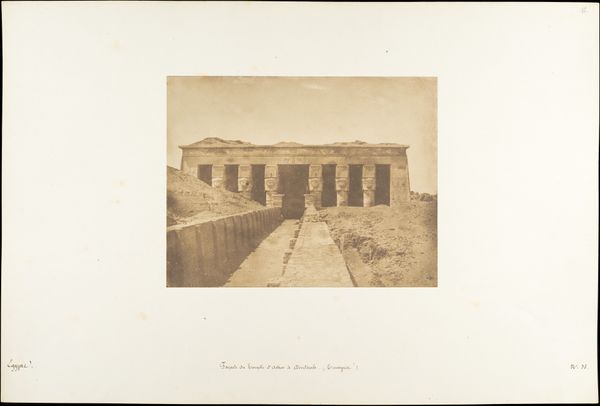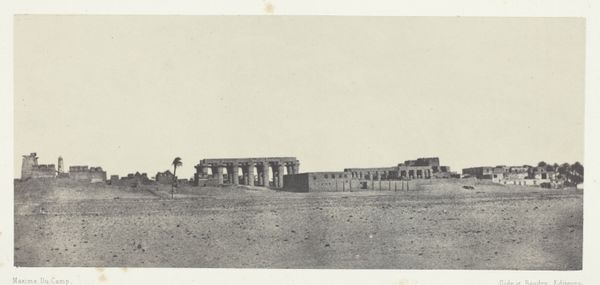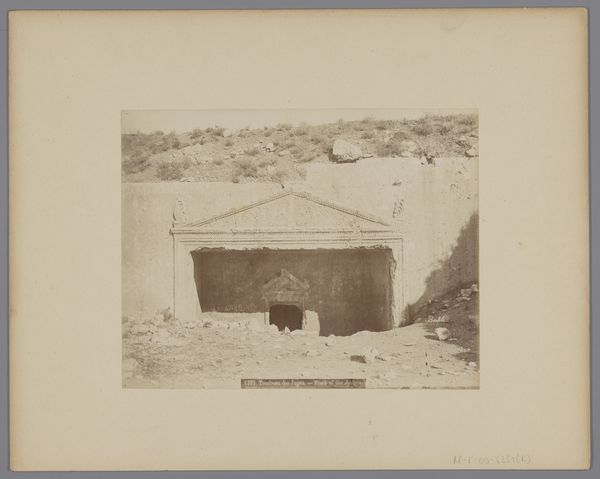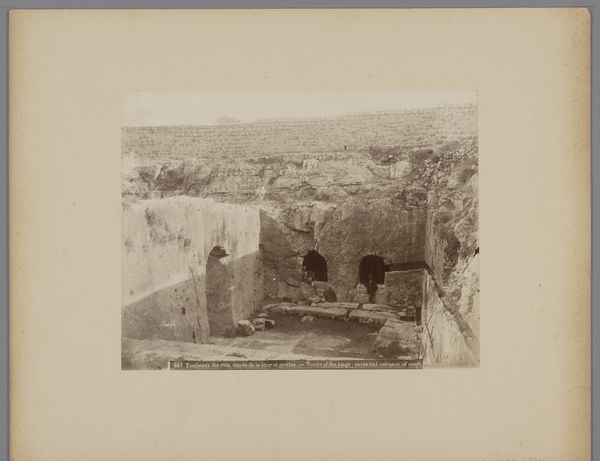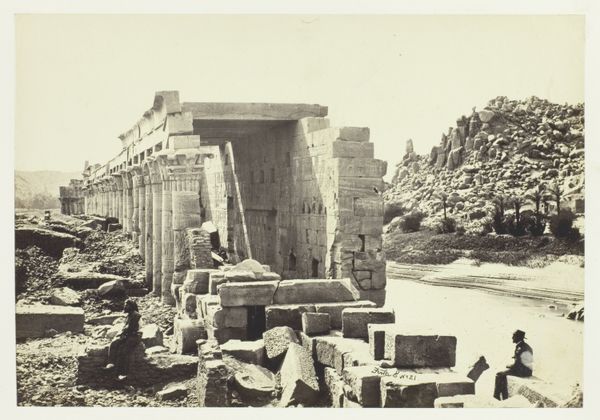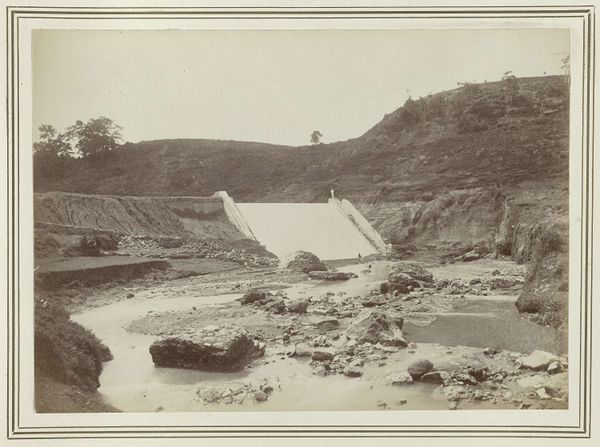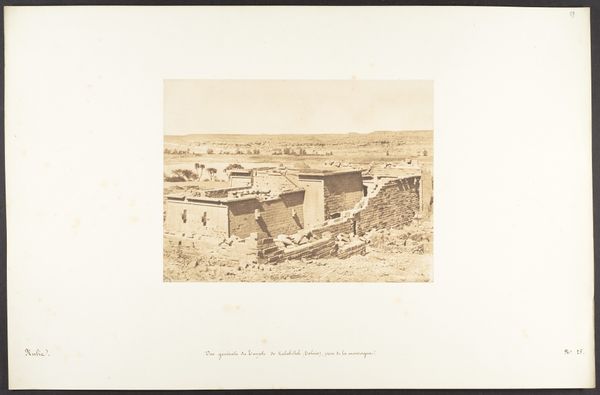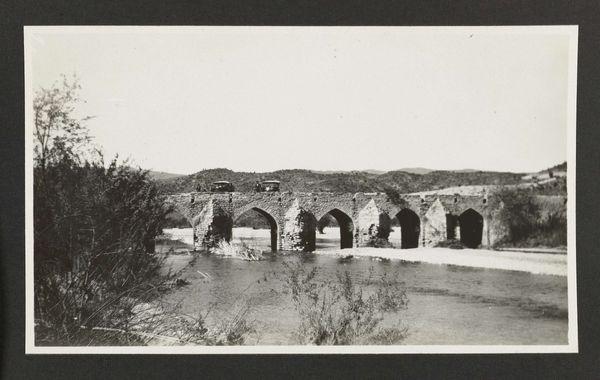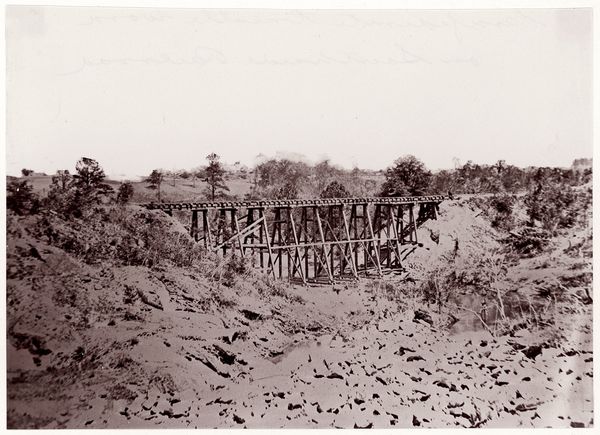
Palais de Karnak, Appartements Privés du Palais, Promenoir de Tôthmès III; Thèbes Possibly 1849 - 1852
0:00
0:00
print, paper, photography, albumen-print
#
print photography
# print
#
landscape
#
ancient-egyptian-art
#
paper
#
photography
#
egypt
#
ancient-mediterranean
#
france
#
albumen-print
Dimensions: 16.4 × 20.5 cm (image/paper); 30 × 42.8 cm (album page)
Copyright: Public Domain
Maxime Du Camp made this photograph of the Palais de Karnak in Thebes using the calotype process, one of the earliest photographic techniques, rendering a soft, almost dreamlike quality. The calotype involves coating paper with silver iodide, exposing it to light in a camera, and then developing the latent image. This labor-intensive process, requiring careful preparation and handling of chemicals, contrasts sharply with the monumentality of the ancient architecture it depicts. The grainy texture and tonal range of the calotype print emphasize the weight and texture of the stones, highlighting the human effort involved in the construction of the palace. Du Camp's choice of the calotype process, with its inherent imperfections and reliance on skilled craftsmanship, imbues the image with a sense of historical depth and material presence, connecting the labor of the photographer with that of the original builders of the Palais de Karnak. It reminds us that photography, like architecture, is a process of both construction and interpretation.
Comments
No comments
Be the first to comment and join the conversation on the ultimate creative platform.
